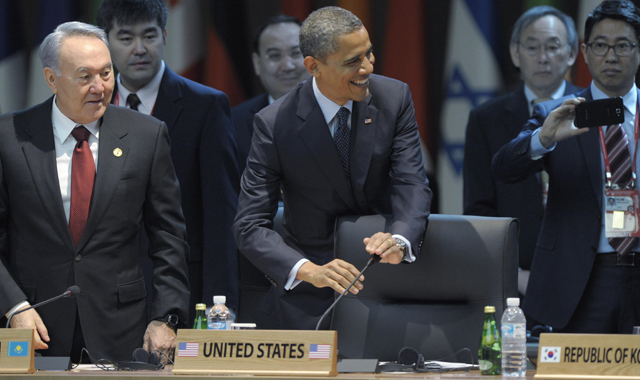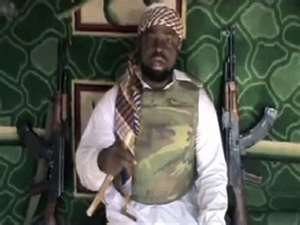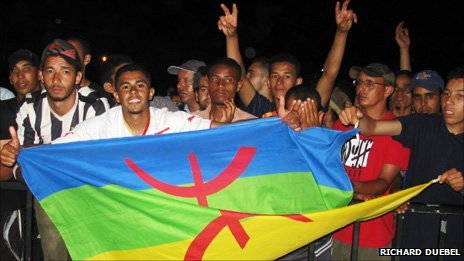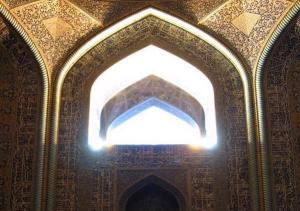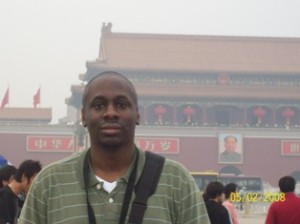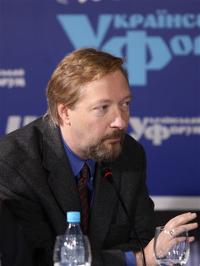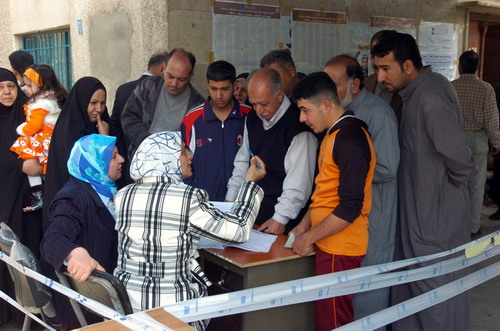
FOR PROVINCIAL ELECTION RESULTS AND PROVINCIAL MAP CLICK ON IRAQ 2009 ELECTIONS CENTER LINK ON THE MENU BAR TO THE RIGHT
Iraq’s critical January 31 provincial election wars are over. With the Iraq Election Commission reporting 90 percent of the vote, the stunning results have far reaching implications for the upcoming referendum on the Status of Forces Agreement (SOFA), December’s parliamentary elections and President Obama’s proposed U.S. troop withdrawal plan. Prime Minister Nouri al Maliki’s “State of the Law” coalition emerged as the big election winner. The advocates of stronger central government gained substantially against Kurdish and Shiia demands for more provincial power, and the Sunni minority participated broadly for the first time in three national elections. The surprisingly peaceful and fair elections were marked by contentious intra-group campaigning as Sunni Awakening Forces challenged the dominant Sunni Iraqi Islamic Party, and four Shiia parties (Maliki’s DAWA Party, the Supreme Islamic Iraqi Council, the Sadrists and the Fadhila Party) battled across Southern Iraq for electoral supremacy. Despite a lower than expected turnout of 51 percent, seven million Iraqi’s voted for 14,000 candidates vying for 440 provincial and local offices.
Nouri al Maliki, the once weak Prime Minister who controlled little more than Baghdad’s fortified Green Zone and a rump parliament, led the “State of the Law” coalition list to victory in seven provinces in predominantly Shiia southern Iraq. Maliki’s coalition captured a plurality of 38 percent in Baghdad and 37 percent in the strategic oil port city of Basra, where he directed the Iraqi National Army drive to oust Muqtada al Sadr’s Mahdi army in the summer of 2008. Maliki’s even scored a narrow two point victory in Najaf, the center of Iraq’s Shiite religious movement and stronghold of Dawa’s rivals, the Supreme Islamic Iraqi Council (SIIC) and the Sadrists.
The keys to Maliki’s success are instructive. Eschewing his DAWA Party’s religious themes, Maliki’s coalition ran on a platform of restoring law and order. He played to the Iraqi masses fatigue with sectarian conflict and argued that violence had been reduced to a minimum. Maliki trumpeted his leadership in signing the Status of Forces Agreement requiring all U.S. troops to leave Iraq by 2011, thereby muting the SIIC and Muqtada al Sadr’s rhetoric as the guardians of Iraqi nationalism. Next, Maliki maneuvered to divide his Shiia opponents by teaming with the SIIC and the Iranian government to subdue Muqtada al Sadr’s militias in Basrah and Baghdad last July. Then Maliki sided with the weakened Sadr forces in the elections to curb the Supreme Islamic Iraqi Council’s push for a nine-province Shiia super state in Southern Iraq, which runs counter to both their interest in a strong central government. Maliki also took advantage of the splits among Sunni and Sadists forces to secure electoral and military alliances. Finally, as the only major player in Iraq without loyal armed forces to back his writ, Maliki cobbled together a patchwork army. Maliki secured the loyalty of two divisions of the Iraq national army in Bagdad to control the capitol city and began paying tribal chiefs across Iraq to form “tribal council” militias to battle other militias and maintain order.
The big loser in the elections was the Supreme Islamic Iraqi Council, led by Abdel Aziz al-Hakim. The SIIC went into the elections with the most seats in parliament and majority control of the nine southern Iraq Shiia provinces. Their party list, Al-Mihrib Martyr List didn’t win a single province, but managed second place finishes in six provinces (Najaf, Qadisiyaya, Basra, Wasit, Muthana, Babil, Maysan and Dhi Qar). The SIIC platform called for more power to the provinces, the formation of Shiia Islamic super-state in Southern Iraq and expansion of an Islamic state. Ridiculed by the Sadrists for agreeing to the SOFA, falling into disfavor with southern Iraqi’s for not securing essential government services, and labeled as agents of their Iranian sponsors, SIIC will need to retool its organization and message for the upcoming Parliamentary elections to maintain its national power.
One of the most critical election battles took place in Anbar Province. Sunni Awakening forces who led the fight to defeat al Queda, challenged the dominant Sunni parliamentary party, the Islamic Iraqi Party (IIP). The Awakening and National Independent List finished in second place by one-half a percentage point behind the independent Sunni parliamentarian Salih al-Mutalk. The Islamic Iraqi Party came in a close third. The Awakening forces threatened to drown Anbar province in blood if the Islamic Iraqi Party finished first. Although neither the IIP nor the Awakening forces won, the results were so close that a recount was ordered, and the government imposed an immediate curfew in Anbar to impose order. The situation in Anbar remains tense.
While provincial elections in the Kurdish controlled provinces of Dohuk, Suleimaniyah and Erbil were suspended until the Iraqi government and the United Nations agree on a plan on the status of Kirkuk, the Kurds had a great deal at stake in two bordering provinces with large Kurdish populations. The Kurdish Alliance ran second in Ninevah with 25 percent of the vote and second in Diyalah with 17 percent of the vote. The loss in Ninewah to the new Arab nationalist Al Hadbaa List (38% of vote) was a big setback. Although Arabs in Ninewah are the majority the Kurds gained control of the provincial government when Sunni Arabs boycotted the 2005 election. Al Hadbaa has not only launched attacks on the Kurds, but is vehemently opposed to expansion of the Kurdish Region.
As the final results of Iraq’s provincial elections are sorted out over the next two weeks, the struggles will begin to divide provincial governance assignments, local offices, and expenditure of provincial revenues. With not a single party list winning more than 50 percent of the votes in any of Iraq’s 14 provinces, the winners will have to divide provincial offices with their adversaries, and the other minor parties. In most cases this will be a fractious process. In Anbar and Ninewah provinces, the potential outbreak of violence is very real. In order to preserve the gains that Prime Minister Nouri al Maliki made in the elections and to consolidate order across Iraq, he will need to respond appropriately with prudence to any flashpoints of contention.
Despite the difficult hurdles the Maliki government must clear going forward, the Iraqi provincial elections were a big success for the Obama administration. Had the elections been marred in violence and fraud, Iraq’s fragile peace could have been plunged in chaos and Maliki’s regime severely undermined. The defeats of the dominant Shiia “Supreme Islamic Iraqi Council” in southern Iraq and the Kurdish setbacks in Ninewah and Diyalah provinces, has significantly slowed the momentum for federalism and a hard partition of Iraq. Moreover, the rising support for secular parties among the Shiia, Sunni and Kurds is an encouraging sign that polarizing sectarian-leaning parties may be on the decline. The parliamentary elections in December will be even more crucial in the re-alignment of national power sharing.
The victories scored by Maliki’s State of the Law list gives President Obama a stronger maximum leader across Iraq and a powerful proponent for approving the Status of Forces Agreement in the June 2009 national referendum. More importantly, these developments open a wider path of relative stability in Iraq that President Obama desperately needs to begin his proposed 16 month troop withdrawal plan.
